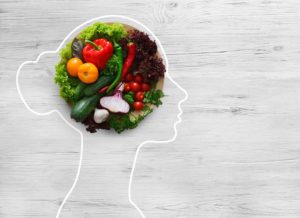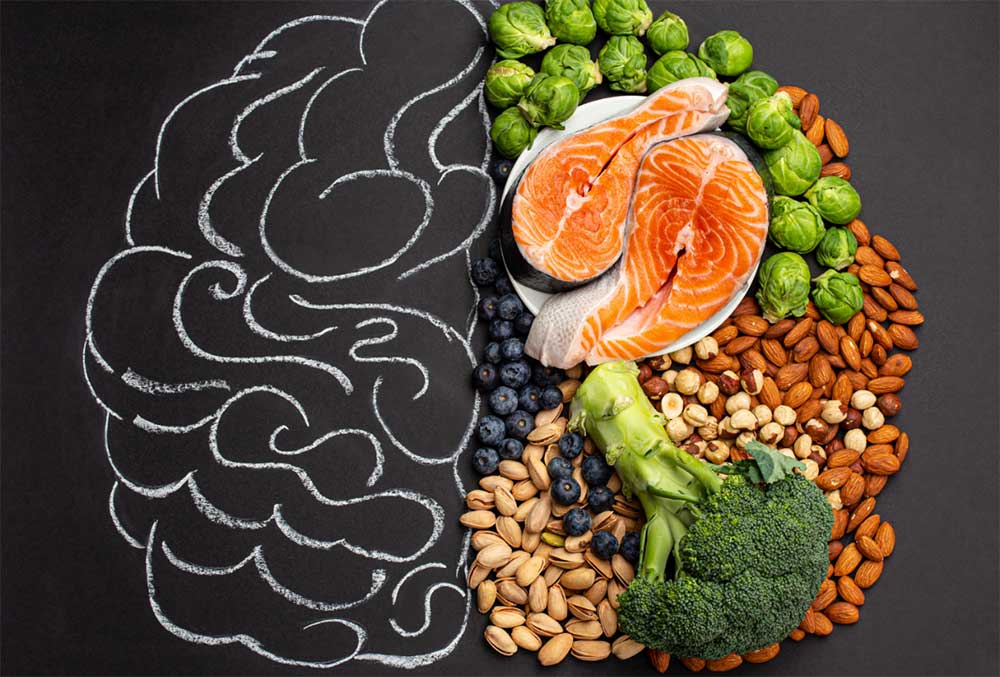 For the past 10 years, I’ve been studying how the food we eat affect our brains. As my interest in this topic grew, I began to wonder if diet could have any impact on mental illness — a topic that has always been close to home for me.
For the past 10 years, I’ve been studying how the food we eat affect our brains. As my interest in this topic grew, I began to wonder if diet could have any impact on mental illness — a topic that has always been close to home for me.
My mother died of schizophrenia when I was 14. At first she was just different from other mothers: she stopped cooking and cleaning; she slept all day; she often forgot to pick me up from school. Then her behavior became truly bizarre. One night, she woke up my sister and me at 3 a.m., insisting that there were intruders in the house and that we needed to escape out of the second-story window. My father eventually had her hospitalized, diagnosed and medicated, but nothing helped for long. She spent most of my teenage years in and out of institutions, heavily sedated and completely out of touch with reality.
Food fuels more than just our bodies; it also feeds our brains. The food we eat affects the way our brains function and how we think, feel, and act. The brain needs a constant supply of energy and nutrients to maintain optimal function. Studies have shown that when people don’t eat for a day or two, their brain activity changes significantly, indicating that the lack of food is affecting their cognitive processing.
Dietary fats are especially important because they make up part of cell membranes throughout the body, including in the brain. They play a crucial role in the formation of nerve connections and are used to form hormones that regulate mood, behavior, and cognition.
In general, a healthy diet involves eating a variety of foods from each food group — fruits, vegetables, whole grains, low-fat dairy products and lean protein sources — while keeping an eye on portion sizes. A healthy diet is associated with reduced risk for many chronic diseases as well as improved mood and cognition. Some studies show that adherence to a Mediterranean diet — which includes fish, fresh fruits and vegetables, whole grains, legumes (beans), nuts and olive oil — may be associated with longer life expectancy and less cognitive decline in older age.
The study of the gut microbiome is a growing field of research, and scientists have discovered some interesting links between the makeup of bacteria in our intestines and brain health. For instance, there is increasing evidence to suggest that the food we eat directly impacts the composition of our gut microbiome. And we know that the gut microbiome can influence brain function, including mood. So it stands to reason that diet affects our mental health.
You are what you eat: how food affects our brain
Low levels of Bifidobacterium and Lactobacillus bacteria in the gut have been linked to poorer cognitive performance and disorders like depression, anxiety, autism spectrum disorder and attention deficit hyperactivity disorder (ADHD). Now scientists are exploring how these bacteria affect neurotransmitters (the chemicals that nerves use to signal each other) and neuroactive compounds that are produced by the body and play an important role in brain function. In particular, they’re looking at biogenic amines such as serotonin and dopamine, which are found in foods like cheese and wine.
There are at least two ways in which the food we eat can influence our brain. First, certain nutrients or lack of them can affect brain function directly. Second, what we eat can influence the composition and actions of the trillions of microbes that live in our intestines.
In the first case, a deficiency of iron, iodine, vitamin B12, or folic acid during fetal development can have profound effects on brain development and result in mental retardation. These same deficiencies in adults can lead to dementia. A deficiency of dietary omega-3 fatty acids also can cause behavioral problems and impair learning ability.
The second way food affects the brain is through our gut flora (aka microbiota). Microbes weigh about 2 kilograms (about 4 pounds), which is as much as the average human brain. But unlike the human brain, we share our gut flora with other humans and microbes dominate our body’s cells by a factor of 10 to 1. Gut microbes play multiple roles in our health. They help us digest foods that we cannot digest on our own; they protect us from harmful bacteria; and they produce vitamins, such as vitamin K and some B vitamins.
A ketogenic diet, which switches the body from using carbs to burning fat as its main fuel, is growing in popularity. Studies have found that it’s good for losing weight and lowering the risk of heart disease, type 2 diabetes and some cancers. New research suggests it might also improve memory and other cognitive functions.
Some studies have shown that mice on a ketogenic diet are better at learning and remembering things than normal mice. So scientists wanted to see if a ketogenic diet could do the same for humans with mild cognitive impairment: a condition that makes it hard to remember things or learn new tasks.
Eleven people with mild cognitive impairment were put on a ketogenic diet for three months. They were then given tests of their memory, thinking skills, attention and mood. And their brains were scanned using an MRI machine.
The results showed that people who stuck to the diet had improved memory compared to those who didn’t complete the full three months of the diet. The researchers think this effect is due to changes in blood sugar levels that make glucose more available to brain cells.

